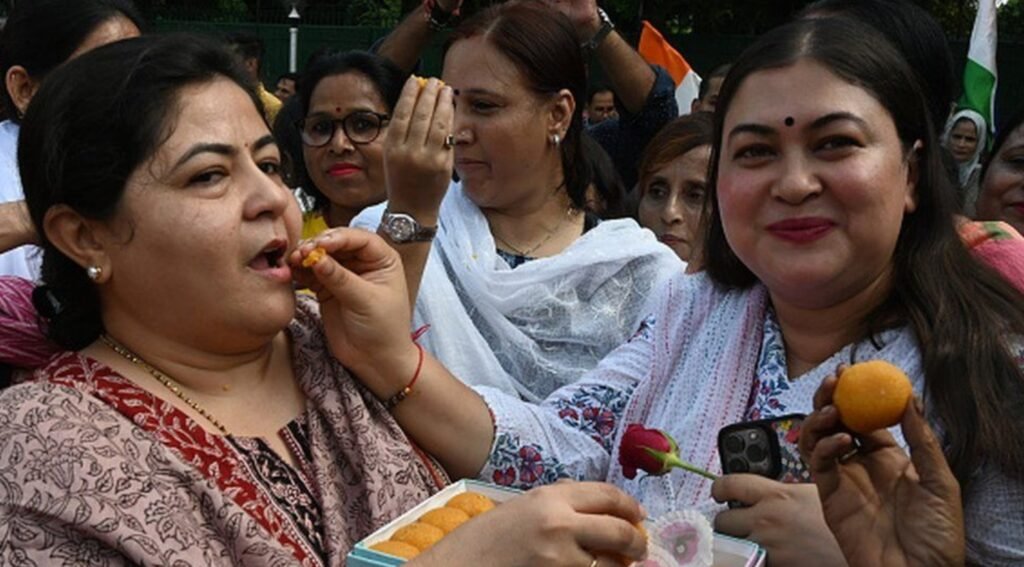India’s parliament has passed a landmark bill that will reserve a third of its seats in the lower house and state assemblies for women, in a major win for rights groups that have for decades campaigned for better gender representation in politics.
The bill, titled the Nari Shakti Vandan Adhiniyam (Women’s Power Salutation Act), was introduced by Prime Minister Narendra Modi’s government in a special parliamentary session on Tuesday and was approved by the lower house on Wednesday with 454 votes in favour and two against. It was passed by the upper house on Thursday with 214 votes in favour and none against.

A historic moment for women’s empowerment
Modi hailed the passage of the bill as “a defining moment in our nation’s democratic journey” and thanked all the lawmakers who supported it. He said the bill was not merely a legislation, but a tribute to the countless women who have made India proud with their resilience and contributions.
“With the passage of this bill, the representation of women power will be strengthened and a new era of their empowerment will begin,” Modi wrote on X, formerly known as Twitter.
The bill will reserve 33% of the 543 seats in the Lok Sabha (lower house) and 4,120 seats in the state assemblies for women. The reservation will be both horizontal and vertical, meaning that it will apply to women from all castes and communities, including the Scheduled Castes (SCs) and Scheduled Tribes (STs), which are already entitled to a separate quota.
The reservation will come into effect after the next census and delimitation exercise, which are expected to take place after the 2024 general elections. The bill also stipulates that the reservation will be valid for 15 years from the date of its commencement.
A long-pending demand fulfilled
The bill fulfils a long-pending demand of women’s rights activists and political parties, who have been pushing for greater representation of women in decision-making bodies. India ranks 148th out of 193 countries in terms of women’s representation in parliament, according to the Inter-Parliamentary Union (IPU).
The bill was first introduced in 1996 by the then United Front government, but faced stiff opposition from some regional parties and male-dominated factions within various parties. It was revived several times by successive governments, but could not be passed due to lack of consensus and political will.
The Modi government, which enjoys a comfortable majority in both houses of parliament, decided to bring the bill as a surprise move during a special session convened to mark the inauguration of the new parliament building. The bill received overwhelming support from almost all parties, except for the All India Majlis-e-Ittehadul Muslimeen (AIMIM), which opposed it on the grounds that it would exclude women from backward classes and minorities.
A boost for Modi ahead of elections
The passage of the bill is seen as a major boost for Modi and his Bharatiya Janata Party (BJP) ahead of the national elections due next year. The BJP has been trying to woo women voters with various schemes and initiatives, such as providing free cooking gas cylinders, building toilets, promoting education and health care, and abolishing triple talaq (a form of instant divorce among Muslims).
The bill is also likely to have a positive impact on the social and economic status of women in India, where they face multiple challenges such as discrimination, violence, poverty, illiteracy and lack of opportunities. According to the World Economic Forum’s Global Gender Gap Report 2021, India ranks 140th out of 156 countries in terms of gender parity.
Women activists and experts have welcomed the bill as a historic step towards ensuring equal participation and representation of women in governance and policy-making. They have also urged the government to implement the bill effectively and ensure that women candidates are given adequate support and resources to contest elections.
